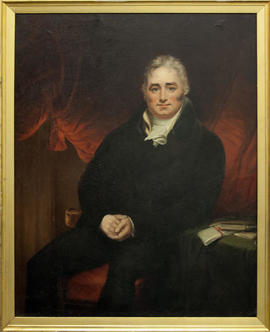- GB-2014-WSA-08694
- Person
- 1689-1741
HARLEY, EDWARD, 2ND EARL OF OXFORD, only son of Robert Harley, 1st Earl of Oxford PC KG, Chancellor of the Exchequer and Lord High Treasurer, and his first wife Elizabeth, dau. of Thomas Foley MP, Witley Court, Worcs.; nephew of Edward Harley (at school under Busby, qv); b. 2 Jun 1689; at school under Knipe; Christ Church, Oxford, matr. 30 Oct 1707; MA 2 Jan 1711/2; DCL 4 Jun 1730; MP New Radnor 16 Jul 1711-5, Cambridgeshire 1722 – 21 May 1724; succ. father as 2nd Earl of Oxford 21 May 1724; FRS 23 Nov 1727; High Steward of Cambridge from 1728; friend of Pope, Swift and Matthew Prior (qv), and patron of George Vertue and Oldys; added very considerably to his father’s collection of books and manuscripts; also collected pictures, prints and coins; his Wimpole, Cambridgeshire, estate was sold in 1740 to Lord Hardwicke to pay off his debts; his miscellaneous curiosities, coins, medals and portraits were sold by auction in March 1741/2; the books, pamphlets and prints were purchased the same year by the bookseller Thomas Osborne; the manuscripts were sold to the nation in 1753 and are now the Harleian MSS in the British Library; Busby Trustee 18 Feb 1725/6; the letters to him from his Oxford tutor William Stratford (qv), which make frequent allusions to the School, are calendared HMC Portland MSS, vol. vii; m. 31 Oct 1713 Lady Henrietta Cavendish Holles, only dau. of John Holles, 4th Earl of Clare (afterwards 1st Duke of Newcastle); d. 16 Jun 1741. Buried Duke of Newcastle’s vault, Westminster Abbey. DNB.

